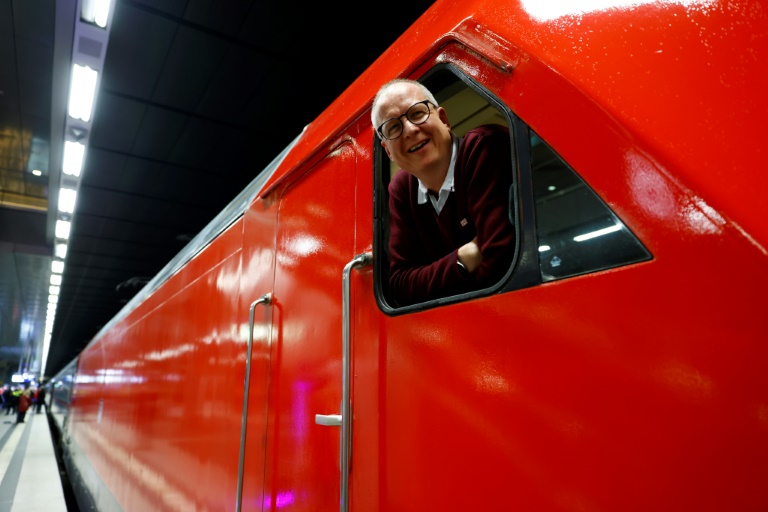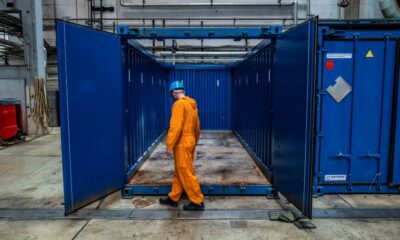A new sleeper service between Berlin and Paris arrived in the French capital on Tuesday, reflecting a growing drive for night trains as an alternative to short-haul flights.
The 14-hour nocturnal trip from the German to the French capital is to run three times a week, and is scheduled to become daily from October next year.
The connection is operated by French and German national train operators SNCF and Deutsche Bahn, while the rolling stock is provided by Austrian train company OeBB, whose “Nightjet” trains already criss-cross central Europe.
The maiden voyage left from Berlin’s main station with government ministers from Paris and Berlin as well as the chiefs of the train companies in attendance to wave it off.
The overnight connection returns nine years after the previous service was stopped — although like many night trains it is relying on government subsidies to break even.
“It’s a new era for the night train alliance,” German Transport Minister Volker Wessing said in Berlin.
The train pulled out of Berlin 10 minutes behind schedule at 8:28 pm (1928 GMT) on Monday and arrived in Paris 15 minutes late at 10:39 AM (0939 GMT).
French Transport Minister Clement Beaune, who spent the night on the train, told waiting reporters in Paris that the trip had been “magnificent”.
“This Berlin-Paris service is a symbol that we need at the moment,” he said, “because we need positive, ecological and European projects”.
There are currently no direct daytime train services between Paris and Berlin.
If passengers accept one change, they can make the journey in under 8.5 hours in the daytime.
– ‘Tight in aeroplanes, too’ –
Passengers on the Austrian-provided Nightjet trains can choose between ordinary seats, six-bunk cabins and sleeper cars with private compartments for one, two or three passengers.
“It’s great to get on a train and wake up in Paris,” said Annika Volz, an ambassador for the Franco-German Youth Office that organises cultural exchanges between both countries.
“It’s a strong, sustainable symbol for German-French relations,” she said.
Volz said she was undeterred by cramped six-bunk compartments, saying: “space is tight in aeroplanes, too,” she said.
One-way ticket prices start at just under 30 euros ($33), a low price point meant to stimulate demand and possible only thanks to subsidies.
Despite generating excitement beyond the ranks of rail enthusiasts, night trains remain an unreliably profitable business for operators.
In France, many lines are kept going by subsidies, with no less than 10 million euros a year going into the Berlin link.
The sector has experienced a renaissance as passengers and policy makers look for a cleaner alternative to air travel.
In 2020, French President Emmanuel Macron set the aim of opening 10 new sleeper services by 2030, with the results already visible.
As well as the Berlin link, several new connections between Paris and peripheral destinations in mainland France have already begun operation.
Some 100 million euros have been invested by the French government to revive the network and ready new carriages for service.
For clients, the climate benefits and charm of train travel have proven a draw.
In 2023, around 215,000 passengers took the night train to their destination, a 15-percent increase on the previous year.
burs/jh/sjw/rox

 Business4 months ago
Business4 months ago
 Business5 months ago
Business5 months ago
 Events3 months ago
Events3 months ago
 People4 months ago
People4 months ago
 Events6 months ago
Events6 months ago
















